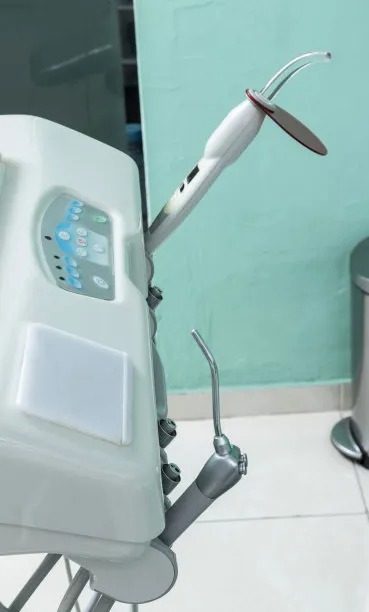The Importance of Professional Tooth Extraction and Aftercare for Optimal Oral Health and Recovery
Summary: The significance of professional tooth extraction and aftercare cannot be overstated in maintaining optimal oral health and ensuring a smooth recovery process. This article delves into four key areas: the necessity of specialized techniques in tooth extraction, the role of aftercare in preventing complications, the importance of professional guidance for recovery, and the psychological benefits of seeing a qualified dentist. By understanding these aspects, individuals can recognize the value of entrusting their dental care to professionals, ultimately leading to healthier smiles and improved well-being.
1. Specialized Techniques in Tooth Extraction

Professional tooth extraction involves precise techniques that minimize risks and complications. Dentists utilize advanced tools and methodologies tailored to individual cases, ensuring that the extraction process is as smooth and efficient as possible. They assess factors such as tooth position, root structure, and surrounding bone health to determine the best approach.
This specialized knowledge allows dental professionals to anticipate potential challenges during the procedure. For example, the extraction of impacted wisdom teeth, which often requires more complex maneuvers, can be performed safely with the expertise that general practitioners may lack. Ultimately, this reduces the likelihood of traumatic extractions that could lead to prolonged pain or complications.
Moreover, professional extractions ensure that the surrounding gum and bone structures remain healthy. By employing techniques that safeguard these areas, dentists can prevent the need for further procedures such as bone grafting in the future. This care underscores the importance of having an extraction performed by a qualified professional rather than attempting it in a non-professional setting.
2. The Role of Aftercare in Preventing Complications
Aftercare is a crucial aspect of the tooth extraction process that directly influences recovery and oral health. Following an extraction, dentists provide specific aftercare instructions, including recommendations for pain management, diet, and oral hygiene practices. Adherence to these guidelines can significantly reduce the risk of complications such as infections or dry socket.
Infection is a common concern after an extraction, as the open socket may become a breeding ground for bacteria. Dentists recommend using prescribed antibiotics and maintaining proper oral hygiene to mitigate this risk. Additionally, guidelines for post-operative care such as avoiding certain foods and activities help ensure a smooth healing process.
Furthermore, monitoring the extraction site for unusual symptoms—such as excessive swelling or prolonged bleeding—is essential for early detection of potential complications. Educating patients about what to expect during recovery empowers them to seek help promptly if needed. Thus, thorough aftercare can make the difference between a smooth recovery and one fraught with issues.
3. Importance of Professional Guidance for Recovery
Professional guidance during the recovery phase enhances the likelihood of a successful healing process. Dentists can provide individualized advice tailored to each patient’s situation, making adjustments to care as recovery progresses. Regular follow-up appointments allow dentists to assess healing and address concerns that may arise.
In addition, dental professionals can recommend tools and products to aid in the recovery process. For instance, they might suggest specific mouth rinses or gently advocated products to promote healing without disruption. Through such personalized resources, patients can navigate the recovery phase with greater comfort and confidence.
Professional involvement also helps in tailoring the recovery plan based on patient-specific factors like age, overall health, and any underlying medical conditions. Such customized plans ensure that recovery aligns with the needs of the individual, further emphasizing the need for professional oversight in the process.
4. Psychological Benefits of Seeing a Qualified Dentist
The psychological aspects of undergoing tooth extraction are often overlooked, yet they play a critical role in recovery. Many patients experience anxiety or fear regarding dental procedures, which can be alleviated through the professional approach of qualified dentists. Having access to a caring and understanding dental team enhances patient comfort and trust.
Furthermore, the confidence gained from having a trained professional conduct the procedure alleviates worries about potential complications. Knowing that a dentist is equipped to handle the extraction effectively can significantly reduce preoperative anxiety. Such reassurance allows patients to focus on recovery rather than any lingering fears.
In the long run, positive experiences with professional dental care build a better relationship with oral health practices. Patients who feel supported and informed about their treatment are more likely to maintain regular check-ups and prioritize oral hygiene, contributing to long-lasting health benefits.
Summary:
In conclusion, professional tooth extraction, accompanied by proper aftercare, is paramount for optimal oral health and recovery. Understanding the specialized techniques utilized, the importance of aftercare, and the benefits of professional guidance sheds light on why opting for qualified dental services is crucial. By recognizing these key elements, patients can ensure their path to recovery is not only effective but also psychologically reassuring.
This article is compiled by Vickong Dental and the content is for reference only.


